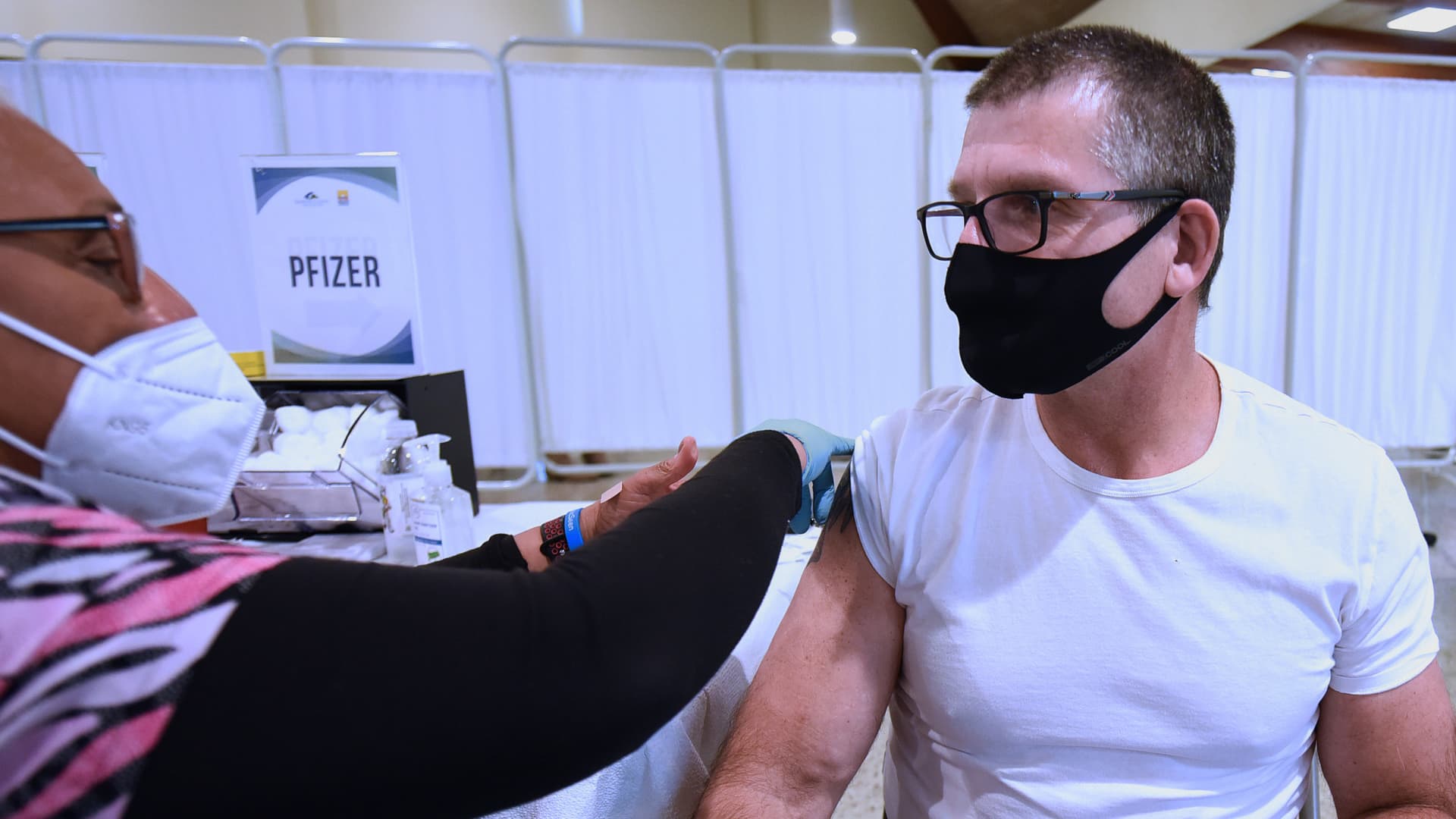MY NUMBER 1 RECOMMENDATION TO LOSE WEIGHT: CLICK HERE
A healthcare worker administers a dose of the Pfizer covid-19 vaccine to a man at the Sanford Civic Center. With the emergence of the Omicron variant of covid-19 in many countries, including the United States, the US Centers for Disease Control (CDC) encouraged all vaccinated adults to receive a booster vaccination against covid-19.
Paul Hennessy | LightRocket | Getty Images
Pfizer and BioNTech released more human data on Friday showing that omicron BA.5 boosters work better than older Covid vaccines.
People over 55 who received the new booster vaccine had about four times more anti-omicron BA.5 antibodies than people in the same age group who received the old vaccine, according to the companies. Antibodies are a key part of the body’s defense system, which prevent the virus from entering cells.
The study compared 36 people over the age of 55 who received a booster dose of omicron as a fourth dose with 40 people in the same age group who received the original vaccine as a fourth dose.
In addition, people aged 18 to 55 years who received the booster vaccination had 9.5 times more anti-omicron BA.5 antibodies than before vaccination. These participants were not compared to people of the same age who had received the old vaccines.
Pfizer and BioNTech also found that people with and without prior covid infections had significant increases in antibody levels after omicron boosters. But in those who had not been infected before, the antibodies increased, according to the companies.
Pfizer and BioNTech released first human data in October show that omicron boosters trigger a better immune response. But two small ones, vizindependent studies from Columbia and Harvard cast doubt on whether the footage was really a significant advance. They found that the new boosters and the old injections worked about equally against omicron BA.5.
The Food and Drug Administration said the Columbia and Harvard studies were too small to draw definitive conclusions about boosters. The scientific community and public health officials are closely monitoring the data on the boosters because the FDA approved them without direct human data.
The FDA instead relied on human data from a similar dose targeting the original version of omicron, BA.1, as well as from animal studies that directly examined the BA.5 dose.
Pfizer and Moderna were originally developing BA.1 injections, but the FDA asked them to switch gears over the summer and develop a booster that targets BA.5 because it has become the dominant version. As a result, there was not enough time for companies to start clinical trials and deliver data before FDA approval.
The FDA acted immediately to introduce new anti-omicron injections by fall to prevent another wave of infections, hospitalizations and deaths this fall and winter.
The White House, the FDA and the Centers for Disease Control and Prevention have said repeatedly that boosters should provide better protection this fall and winter because they directly match the dominant strain of the virus for the first time since December 2020.
The boosters are called bivalent vaccines because they target both the omicron version of BA.5 as well as the original strain of the virus that emerged in China in 2019. The old vaccines are called monovalent vaccines because they only target the original Covid strain.
Monovalent vaccines no longer provide meaningful protection against infection and mild disease because the virus has evolved so much. In general, they are still effective against serious illness and hospitalization, although even this protection has diminished over time.
.
MY NUMBER 1 RECOMMENDATION TO LOSE WEIGHT: CLICK HERE
Source
